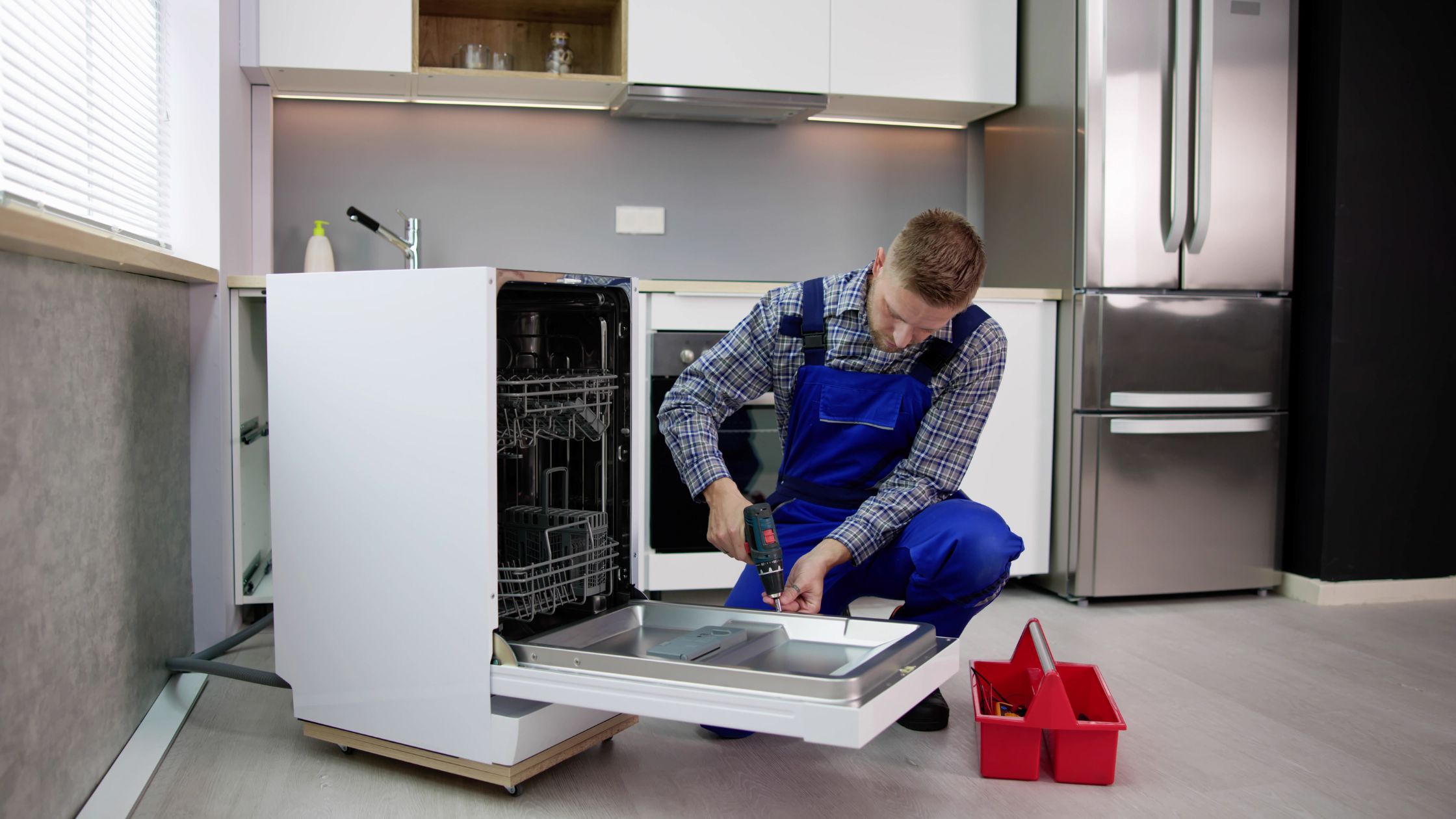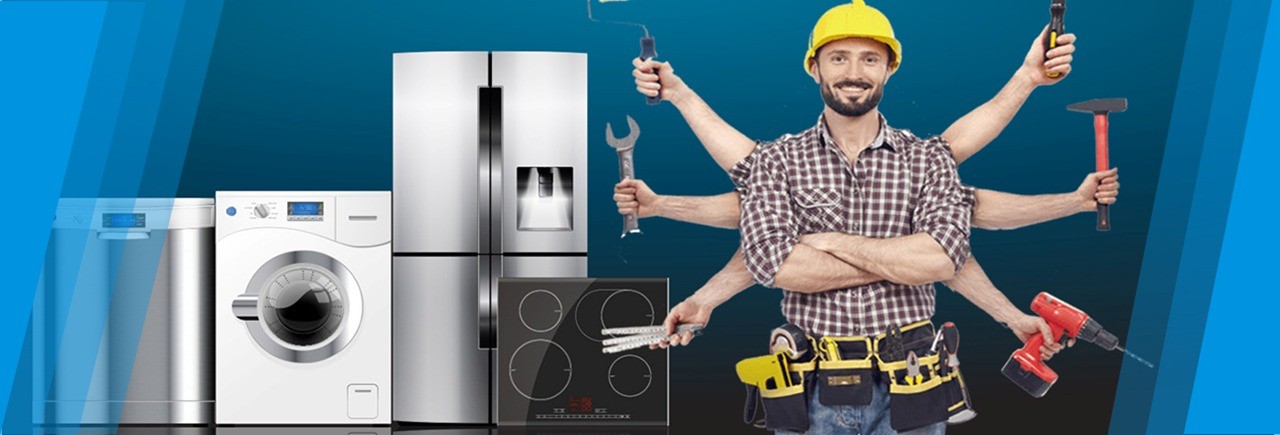Pros, Cons & Best Practices – Dependable Refrigeration & Appliance Repair Service Washing Machine Repair
Pros, Cons & Best Practices – Dependable Refrigeration & Appliance Repair Service Washing Machine Repair
Blog Article
The Ultimate Overview to Comprehending Device Fixing in the house
When your fridge stops cooling down or your oven refuses to heat, it can really feel frustrating. Comprehending appliance repair work at home can save you money and time. You'll learn to identify signs, make use of crucial tools, and adhere to an organized troubleshooting process. Prior to you start, there are essential safety and security precautions you need to take right into account. What are the most usual problems, and how can you repair them? Let's check out the basics.
Usual Device Issues and Their Symptoms
When your appliances start breaking down, it's important to identify the signs beforehand. Ignoring them can result in larger concerns and expensive repair work. For example, if your refrigerator isn't cooling correctly, you could notice warm spots or condensation creating. This could show a failing compressor or an obstructed vent.Your dishwasher might show problems through unclean recipes or unusual noises throughout cycles. If you hear grinding or clanking, it's time to investigate.A washing machine that will not rotate or drain pipes can leave you with soaked washing, suggesting a blocked drain or a malfunctioning pump.Lastly, if your oven's temperature seems off or it takes forever to pre-heat, you could be dealing with a faulty thermostat. By staying alert to these signs and symptoms, you can attend to problems before they rise right into significant repairs.
Crucial Devices for Device Repair Service
When you're tackling home appliance fixings at home, having the right devices is essential. Basic hand devices like screwdrivers and pliers will aid you disassemble and fix various appliances, while electric screening devices ensure you're working securely with circuitry. Let's discuss what you require to get started on your fixing journey.
Basic Hand Devices
Having the right devices is vital for efficient appliance repair work in your home. Begin with a trusted screwdriver collection, consisting of both flathead and Phillips types, as screws are common in appliance assembly. Pliers are additionally essential; they assist with gripping, twisting, and reducing cables or little elements. A set of needle-nose pliers can reach limited areas conveniently. You'll need a good flexible wrench for tightening or loosening nuts and bolts. An energy blade is convenient for puncturing packaging or insulation. Lastly, do not forget a tough workbench or surface to safely arrange your devices and parts. With these fundamental hand tools, you'll be well-prepared to tackle most device repairs that come your method.
Electric Testing Devices
Along with basic hand devices, electric screening gadgets play a necessary function in device fixing. These devices help you detect electric concerns and assurance devices function safely. A multimeter is crucial; it gauges voltage, present, and resistance, permitting you to determine troubles rapidly. A non-contact voltage tester is an additional essential, allowing you find online wires without making straight get in touch with, enhancing your safety. Clamp meters are wonderful for determining current circulation in cables without detaching them, conserving you effort and time. Additionally, circuit testers can swiftly examine if outlets are functioning properly. By utilizing these gadgets, you'll simplify your troubleshooting procedure and enhance your repair service skills, making appliance upkeep a whole lot simpler.
Step-by-Step Overview to Diagnosing Device Issues
When your home appliance breaks down, it can be aggravating, but identifying the issue doesn't have to be frustrating. You'll learn to identify common troubles and apply effective repairing strategies. Let's go through the steps to get your appliance back in functioning order.
Usual Appliance Problems

Fixing Strategies Discussed

Fixing Significant Kitchen Area Appliances: A Closer Look
Have you ever asked yourself how to tackle typical problems with your kitchen appliances? Fixing major kitchen devices like refrigerators, stoves, and dishwashing machines can be less complicated than you believe. Beginning by identifying the problem-- whether it's a refrigerator not cooling or an oven that won't heat. Commonly, an easy reset or checking the power resource can resolve the issue.For fridges, tidy the condenser coils and examine the door seals. If your oven's not home heating, check the burner and thermostat. Dish washers could just need a clean filter or a reset to get them back in activity. Constantly unplug the device prior to diving into repairs to guarantee your safety.Don' t forget to get in touch with the user handbook for particular repairing pointers associated with your version. With a little persistence and the right devices, you can confidently deal with appliance fixings and conserve money while doing so!

Repairing Laundry Equipments: Tips and Techniques
When your laundry devices start breaking down, it can feel overwhelming, however repairing them doesn't have to be a problem. Beginning by examining the power supply. Confirm the appliance is plugged in and the electrical outlet is working. Next off, evaluate the door or lid fisher and paykel fridge repairs switch; a malfunctioning switch can protect against the equipment from operating.For washers, if it's not spinning, look for unbalanced tons. Rearranging the clothing might address the issue. If your clothes dryer isn't home heating, tidy the lint filter and check the vent for blockages.Listen for uncommon sounds; they can show an issue. If your home appliance is leaking, check the pipes for cracks or loosened connections. Record any type of error codes presented on electronic displays, as they can guide you in determining the concern. Lastly, get in touch with the individual guidebook for certain repairing tips associated with your version.
Safety And Security Preventative Measures to Take Throughout Fixes
Prior to you begin any type of device repair work, it's important to focus on safety to protect against crashes or injuries. First, unplug the home appliance or shut off the circuit breaker to guarantee no power reaches it while you work. Usage insulated tools to reduce the threat of electrical shock. Wear safety and security goggles and gloves to safeguard on your own from sharp edges or debris (Dependable Refrigeration & Appliance Repair Service Washer repair near me).Make particular your work area is clean and well-lit, so you can see what you're doing. Keep kids and family pets far from the area to prevent distractions and prospective dangers. If you're managing gas appliances, be added mindful; look for leakages before proceeding.Take your time, and do not rush through repairs. If you really feel uncertain regarding any action, it's far better to stop and study than to think. Adhering to these preventative measures will certainly assist develop a much safer environment for your DIY appliance repair work project
When to Call a Specialist for Assistance
How do you understand if it's time to call in an expert for appliance fixings? If you have actually attempted standard troubleshooting without success, it's a clear sign. If your device still will not start or reveals unusual noises after resetting it, don't think twice to seek professional help.When you notice leakages, smoke, or shedding smells, prioritize security and call a professional quickly. These concerns can result in more substantial damage or pose threats to your home.Also, if your appliance is under guarantee, contacting an expert is frequently the finest course. They can ensure that repair services will not nullify your guarantee, conserving you money in the long run.Finally, if you're unsure or uncomfortable with complex fixings, it's a good idea to leave it to the professionals. Keep in mind, taking on difficult concerns without the best competence can result in pricey blunders. Trust fund a professional when unsure!
Regularly Asked Questions
Just How Can I Avoid Appliance Problems in the Future?
To avoid device issues in the future, you should carry out routine maintenance, check for wear and tear, clean filters, and stay clear of overloading. Staying aggressive will aid prolong their lifespan and keep them running smoothly.
What Are one of the most Typical DIY Device Repair Mistakes?
You may forget security preventative measures, skip troubleshooting actions, or use incorrect devices when trying DIY home appliance repair services. Rushing the procedure or neglecting producer standards can lead to even more considerable problems and expensive mistakes. Remain individual and notified!
Just how Do I Know if a Part Needs Replacement?
You can inform if a part needs substitute by looking for unusual sounds, leakages, or inconsistent performance. If the home appliance battles to run correctly or shows noticeable damage, it's likely time for a replacement.
Can I Use Generic Components for Appliance Services?
Yes, you can use generic components for appliance fixings, but ascertain they're suitable - Dependable Refrigeration & Appliance Repair Service Washer repair near me. Generic components may save you money, yet they might affect performance or durability, so evaluate your alternatives meticulously prior to choosing
What Service Warranties Cover Home Appliance Services?
Many device guarantees cover repair services for making problems, yet they often leave out damages from abuse. Examine your warranty terms thoroughly, as some may need making use of certified service technicians and initial parts for protection to remain legitimate.
Report this page